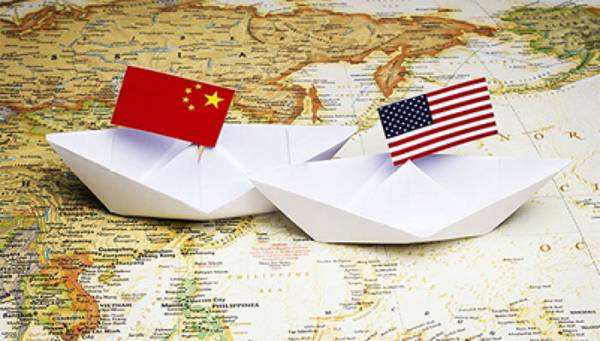

 |
U.S. income gap may have intensified in the absence of Chinese products because they greatly reduce the country’s consumption cost, officials said at a press conference by China’s Ministry of Commerce (MOFCOM) on July 31.
Qian Keming, MOFCOM Vice Minister and Long Guoqiang, vice director of the Development Research Center of the State Council, presented China’s foreign trade situation in the first half of 2017 at the press conference. They said Sino-US trade benefits both countries despite a 6.5 percent year-on-year increase in trade surplus during the period.
Long noted that the U.S. has reduced consumption cost by importing huge amounts of labor-intensive products, especially Chinese consumer goods. Else, its income gap should have widened further.
According to the vice director, China is in the middle and lower reaches of the global value chain, it resells lots of products after processing inputs imported from the U.S. With these factors dealt with, the Sino-U.S. trade imbalance is likely to be cut by at least half, he underlined.
In addition, taking the U.S. macro economy and its status in the global economy into consideration, the country not only posts huge trade deficits with China, but also with other economic bodies as a result of its low savings and high-consumption rate. The U.S. dollar as an international currency is also a contributor to America’s trade deficit in its international circulation.
The official pointed out that the U.S. should consider loosening restrictions on exports to China as exports of high-tech American products accounted for only 8.2 percent of China's imports of the same category, a sharp drop from 16.7 percent in 2001.
China imported integrated circuits totaling $227 billion in 2016, while chips imported from the U.S. only accounted for 4 percent of the whole.
Officials stressed that China and the U.S. should resolve bilateral trade challenges on the basis of openness, balance, mutual benefit, and win-win principles.
Given the significant role of Sino-US trade in the global economy, the two countries should better resolve their differences through negotiations, patience and perseverance rather than trade war, since the latter will negatively impact the development of bilateral trade relations and the global economy, the officials noted.
 Fire brigade in Shanghai holds group wedding
Fire brigade in Shanghai holds group wedding Tourists enjoy ice sculptures in Datan Town, north China
Tourists enjoy ice sculptures in Datan Town, north China Sunset scenery of Dayan Pagoda in Xi'an
Sunset scenery of Dayan Pagoda in Xi'an Tourists have fun at scenic spot in Nanlong Town, NW China
Tourists have fun at scenic spot in Nanlong Town, NW China Harbin attracts tourists by making best use of ice in winter
Harbin attracts tourists by making best use of ice in winter In pics: FIS Alpine Ski Women's World Cup Slalom
In pics: FIS Alpine Ski Women's World Cup Slalom Black-necked cranes rest at reservoir in Lhunzhub County, Lhasa
Black-necked cranes rest at reservoir in Lhunzhub County, Lhasa China's FAST telescope will be available to foreign scientists in April
China's FAST telescope will be available to foreign scientists in April "She power" plays indispensable role in poverty alleviation
"She power" plays indispensable role in poverty alleviation Top 10 world news events of People's Daily in 2020
Top 10 world news events of People's Daily in 2020 Top 10 China news events of People's Daily in 2020
Top 10 China news events of People's Daily in 2020 Top 10 media buzzwords of 2020
Top 10 media buzzwords of 2020 Year-ender:10 major tourism stories of 2020
Year-ender:10 major tourism stories of 2020 No interference in Venezuelan issues
No interference in Venezuelan issues
 Biz prepares for trade spat
Biz prepares for trade spat
 Broadcasting Continent
Broadcasting Continent Australia wins Chinese CEOs as US loses
Australia wins Chinese CEOs as US loses